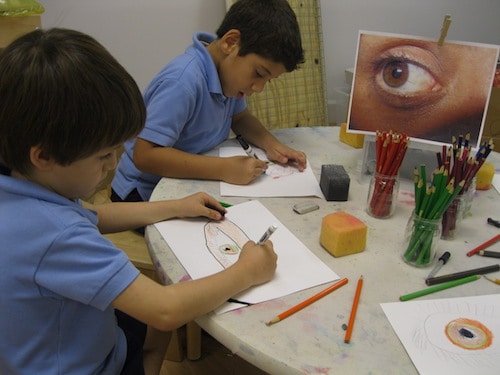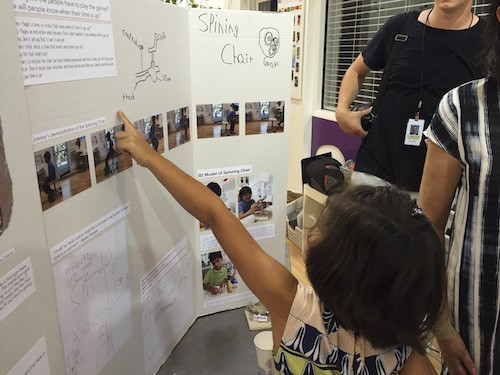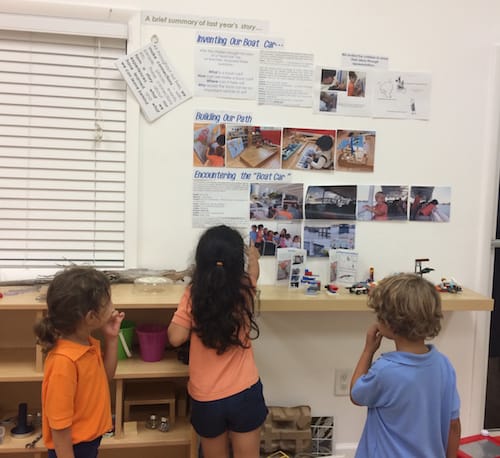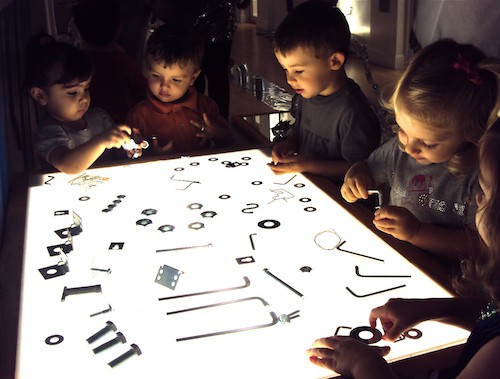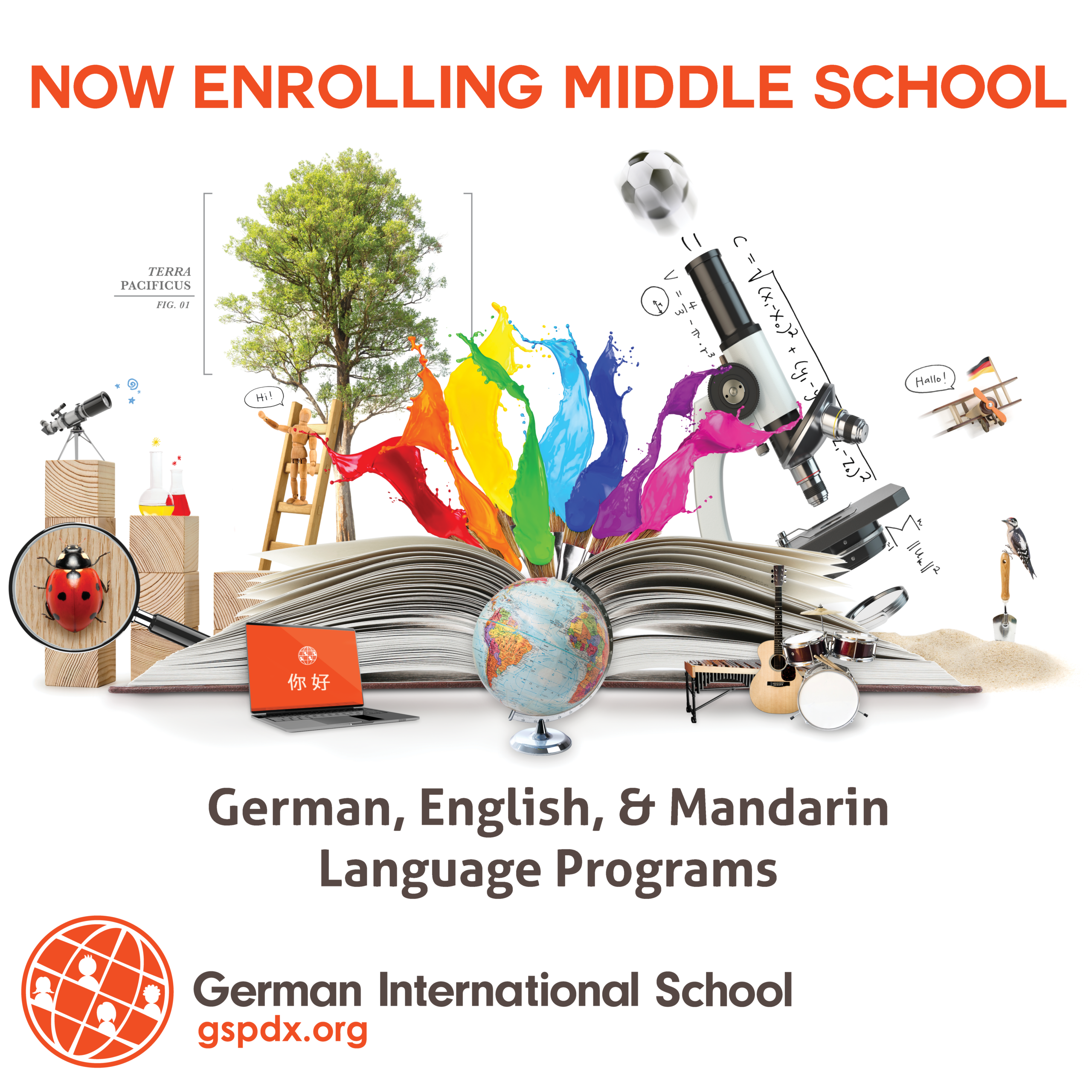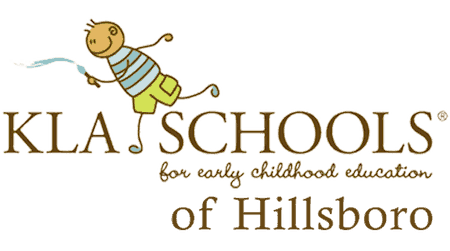
We provide high quality Reggio Emilia inspired education, where our children find endless opportunities to lead their own learning process, create relationships, play and grow
About Us
We are very excited to introduce the KLA School of Hillsboro! We are an innovative, early childhood center dedicated to offering children opportunities to realize their love for learning. An educational setting like no other, this state of the art facility offers children endless opportunities for meaningful learning, outdoor experiences, and nurturing relationships with adults and peers alike. KLA Schools is one of a kind and highly accredited program for its learning method.
The philosophy, inspired by the Reggio Emilia Approach, provides a unique educational program with a rich environment that focuses on the individual learner. The approach is geared to building student skills while fostering new talents in a warm and nurturing environment. More than just a child care center, at KLA School of Hillsboro your child will build the knowledge and skills needed for a strong foundation in early childhood education.
Vision & Values
All children are honored as individuals who are intrinsically motivated and are an integral participant in their own learning.
A school is a community which involves families, educators and children as partners in the learning process.
The school environment is designed to be safe, nurturing, and to promote experiences that invite children and adults to enter into meaningful dialogues that foster children's innate curiosity, creativity, and thinking.
Relationships are at the core of our educational approach and are built with our surroundings: they are the interactions between people, materials, and environments.
Through documentation, the learning process of teachers and children is made visible for furthering understanding, expanding on concepts, and celebrating ideas.
Our Programs
 Baby Nido
Baby Nido
In this classroom we witness the most relevant physical changes in a child's life. Babies begin laying on their backs, to rolling and laying on their tummies, then they sit up, crawl, stand on two feet by holding onto someone or something, to finally taking their first steps.
Nido
For most children aged 12 to 24 months, this is their first encounter with school. During this transition from home to a new environment, we believe in the importance of creating a strong bond between child and teacher, and creating a partnership between teachers and parents to support this process. At this live state, children begin to create their own identity. We support this by offering them experiences and provocations to interact and explore a diversity of materials with different properties such as paper, clay, rice, sand, water, and paint among others.
Class of the 2's
The 2's is an age in which children's interactions with peers and adults around them begin to evolve. They start to develop different ways to express their affection, handle difficult situations, and discover differences and similarities amongst each other. This promotes the continuous growth of their individual identities.
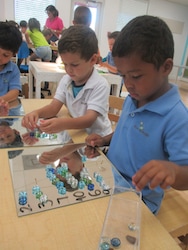 Class of the 3's
Class of the 3's
At this age children encounter a different way of communication. Children express themselves through different written symbols. We support children in the discovery of written communication by creating provocations and situations that awaken interest and love towards it.
Class of the 4's
From the age of 4-5, children approach the world with curiosity and actively enter into conversations to discuss theories, ideas and thoughts in which their imagination may sometimes become the bearer of answers. They become complex thinkers through predictions, experimentations of trial an error observations. Children solve problems by revisiting previous experiences where new conclusions may arise.
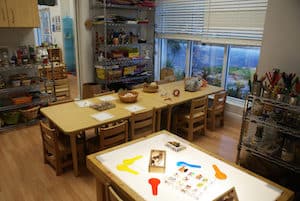 Atelier
Atelier
The word atelier means art studio or workshop in french. It is a welcoming and inspring place where a wide variety of natural and manmade materials are visually available to explore. Here, children of all ages come individually or in small groups to encounter experiences with different media that will progressively support all their languages of expression. The early exploration o the visual arts through materials such as clay, paper, fabric, wire, light, beads, shells, leaves and wood, among others, offer children endless possibilities of becoming experts in all kinds of techniques.
The Reggio Emilia Approach
Origin
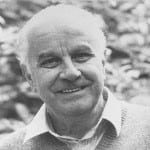 The Reggio Emilia approach to education was founded by a group of inspired parents who desired an educational system where their children could flourish. Led by Loris Malaguzzi, an educator, psychologist, and philosopher after WWII, this philosophy views children as confident, responsible, independent, creative and curious beings.
The Reggio Emilia approach to education was founded by a group of inspired parents who desired an educational system where their children could flourish. Led by Loris Malaguzzi, an educator, psychologist, and philosopher after WWII, this philosophy views children as confident, responsible, independent, creative and curious beings.
"Reggio Emilia is a small city in Northern Italy that shines with a bright light for what it has accomplished and what it stands for in the field of education." ~Lella Gandini
Key values
COMMUNITY AND GROUP WORK: It is essential that we make visible the fact that each child knows and understands that we are all different and can co-exists peacefully. We have different ways of thinking, a fact we embrace. By respecting others processes and opinions we can get along as a community.
ROLE OF THE TEACHER: The teacher plays a critical role by being the child's partner and recognizing many learning possibilities. In order to further the learning process, teachers listen, observe, inquire, document, work together and reflect upon the experiences of children.
IMAGE OF CHILD: Reggio Emilia inspired schools believes in the rights and opinions of each child. A child is a competent, capable and natural researcher who has the desire for knowledge and life and is always ready for challenges.
 PARENT INVOLVEMENT: We value parents as participants in their child s learning process. Their involvement in the school gives their children a sense of security and is deeply appreciated. This lends itself to having parents be a role model for their children, and for them to have an incentive for their own learning.
PARENT INVOLVEMENT: We value parents as participants in their child s learning process. Their involvement in the school gives their children a sense of security and is deeply appreciated. This lends itself to having parents be a role model for their children, and for them to have an incentive for their own learning.
ENVIRONMENTS AND MATERIALS: The spaces of the schools are both thoughtful and inviting. The Reggio Emilia Philosophy believes that the environment in which your child explores is the third teacher. Materials in the classroom inspire children to think outside the box.
A SPACE THAT ILLUMINATES: This art studio is an extension of the classroom. It is a room that belongs to the whole school and its materials are carefully thought out to engage and cultivate any child's interest.
ATELIERISTA: This role is coveted within this philosophy because the atelierista has a
ludic (playful) approach to working with children. While they continue to motivate and engage children to explore the materials and observe each child's process, it is important for them to see how each child makes a connection with the different languages of expression such as dance, photography, movement, theater and more...
Contact Us
KLA Schools of Hillsboro!
1855 NE 48th Avenue, Hillsboro, OR 97124
(503) 333-2002
Email: Hillsboro@klaschools.com
Website: klaschoolshillsboro.com
KLA School – Hillsboro
1855 NE 48th Ave
Hillsboro, OR 97124
503-333-2002
hillsboro@klaschools.com
klaschoolshillsboro.com



